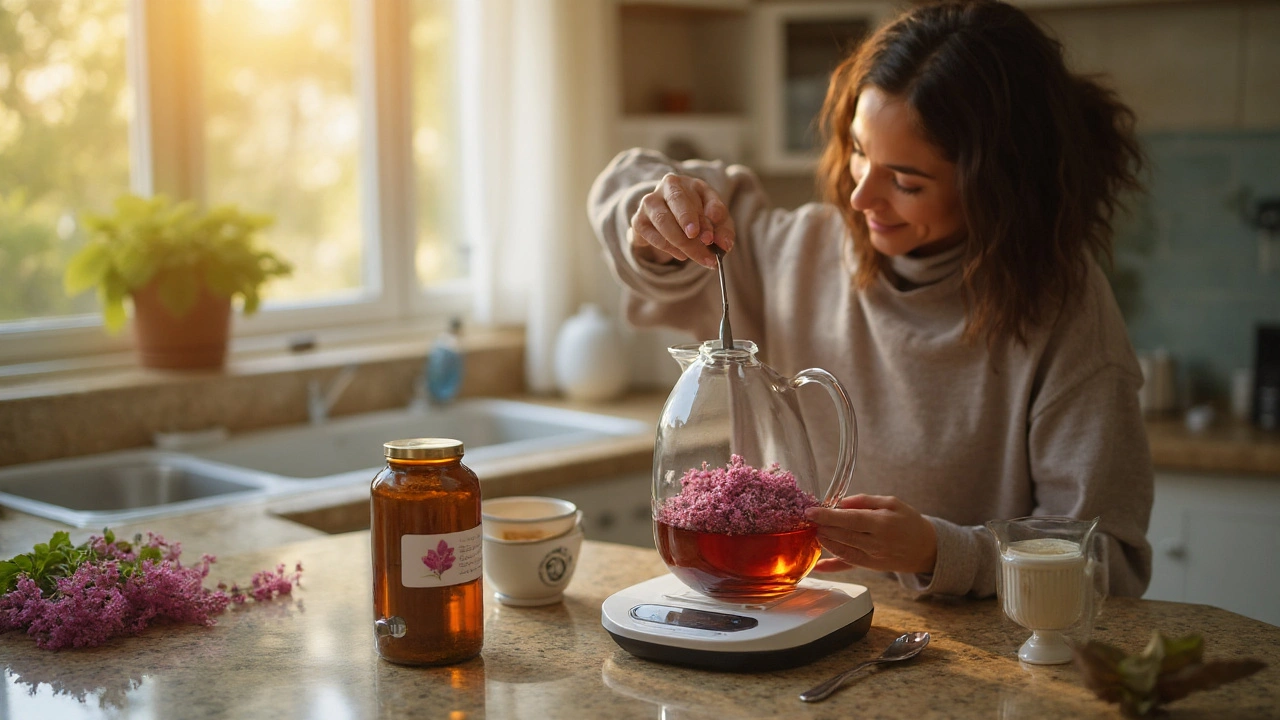Red Clover Tea Benefits: Uses, How to Brew, Safety
Red clover tea comes from Trifolium pratense and is a mild, floral herbal infusion used for menopause support, skin health, and gentle detox routines. It contains isoflavones — plant compounds that act like weak estrogens — which can ease hot flashes and night sweats for some women. Small clinical trials report fewer and less severe hot flashes after several weeks of consistent use, though results vary. Beyond menopause, red clover has antioxidants that may reduce inflammation and support clearer skin when paired with good diet and hydration.
People often use red clover in detox plans because it supports the body's natural cleansing organs. It can help promote mild liver function and encourage urine flow, which aids elimination of waste products. That doesn't mean it flushes toxins overnight; treat it as a supportive drink you add to a healthier routine—more water, fiber, and sleep.
Practical benefits that matter
For daily use, red clover can offer a few clear benefits: easing menopausal symptoms, calming mild skin issues like eczema or acne, and adding antioxidant support to your diet. Athletes and busy people sometimes notice less muscle soreness after adding antioxidant herbs, and red clover can be part of that mix. Because it's gentle, many people prefer red clover tea to stronger herbal medicines when they want a simple, calming cup.
It also mixes well with other herbs. Try red clover with nettle or chamomile for a smooth flavor and broader support—nettle adds minerals, chamomile soothes digestion. Use blends to target specific goals like sleep, digestion, or a detox-supporting nightly tea.
How to brew, dose, and stay safe
To brew: use 1 tablespoon of dried red clover flowers per cup of hot (not boiling) water, steep 8–10 minutes, then strain. Drink 1–3 cups daily. If you prefer a milder taste, steep less time or mix with another tea. Tinctures and capsules exist too; follow product labels or ask a pharmacist.
Talk to a healthcare pro before using red clover if you are pregnant, breastfeeding, have a hormone-sensitive condition, or take blood thinners. Red clover can interact with blood-thinning drugs and some antidepressants. Stomach upset or allergic reactions are rare but possible—stop if you notice unusual symptoms.
For a simple routine, add one cup of red clover tea in the evening for wind-down and hormonal support, and one in the morning on active detox days. Track how you feel over 4–8 weeks; benefits often appear slowly. If you want stronger results for menopause, look for standardized isoflavone extracts and check clinical evidence or ask a qualified herbalist.
Red clover is not a miracle cure, but it's a low-risk, pleasant herbal tea that many people use to add gentle hormonal balance, antioxidant support, and mild detox help to their daily routine.
Choose organic dried flowers when possible; avoid dusty mixes with stems. Look for products that list Trifolium pratense and a harvest date. Store in an airtight jar away from light to keep flavor and potency.

Best Time to Drink Red Clover Tea: Timing, Benefits, Dosage, Safety
Wondering when to drink red clover tea? Get clear guidance on timing, dosage, and safety for hot flashes, sleep, digestion and more, with evidence-based tips.
view more